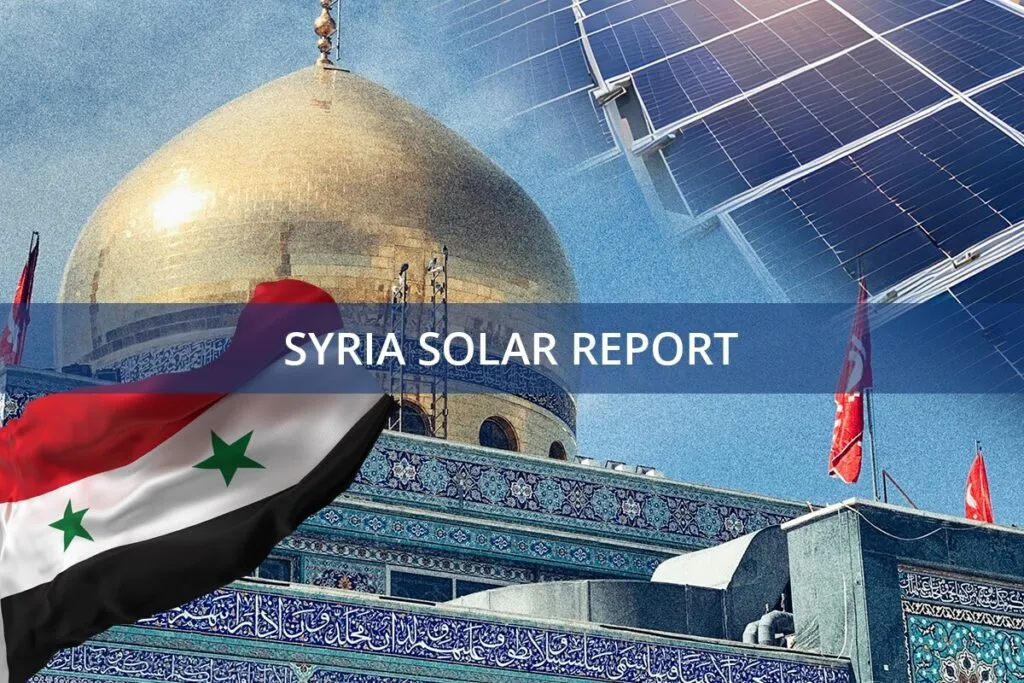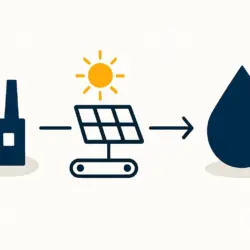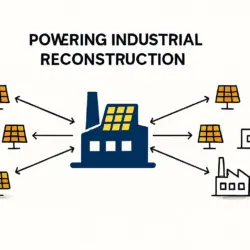Syria has made renewable energy a central pillar of its strategic economic plan, aiming to revolutionize its energy sector. The Second Electricity Investment Conference at Damascus University showcased these efforts, drawing representatives from various sectors to discuss the country’s renewable energy prospects.
Exploring Renewable Energy Opportunities
Over two days, the conference explored plans for renewable energy sources in Syria, opportunities for investment, and the role of the private sector in electricity production. Discussions highlighted successful examples from international and regional bodies, financing models for renewable energy projects, and regulatory incentives aimed at attracting investors.
Mohammed Nawaf Al-Ta‘ani, Secretary-General of the Arab Renewable Energy Authority, underscored Syria’s potential as a hub for Arab cooperation and sustainable development. He proposed declaring Damascus the capital of renewable energy by 2035 and called for collaborative research and development with global leaders in the sector.
Government Initiatives and Legislative Developments
Minister of Electricity Ghassan Al-Zamel declared 2024 the year of renewable energy investment, with a focus on photovoltaic and wind energy. He unveiled new projects, including wind initiatives exceeding 200 megawatts and photovoltaic projects totaling about 600 megawatts. Al-Zamel also highlighted legislative progress through laws 23 and 32, which have facilitated the growth of renewable energy projects in the war-torn nation.
Law No. 23 enables the Ministry of Electricity and its subsidiaries to sign Power Purchase Agreements with alternative energy companies at prices set and approved by the Syrian Prime Minister. This law promotes investment in renewable energy projects, allowing the generated electricity to be distributed through the ministry’s networks to private distributors and addressing the country’s rising demand for electricity.
Meanwhile, Law No. 32 amends earlier legislation to simplify the development of renewable energy projects, encouraging investment through public-private partnerships. This law also mandates that the Ministry of Electricity purchase any surplus production from renewable energy projects, bolstering the sector’s sustainability and resilience.
Economic and Industrial Efforts
Minister of Industry Abdelkader Joukhadar emphasized directing investment toward manufacturing photovoltaic panels and the semiconductor components they require. He stressed the importance of adopting cutting-edge technology from the fourth industrial revolution to enhance energy efficiency.
Governor of Damascus, Engineer Mohammed Tariq Kreishati, expressed optimism that the conference’s decisions would spur investment in Syria’s energy sector by leveraging local human capital and natural resources.
The conference also featured an exhibition showcasing renewable energy projects by public and private companies. Discussions covered improving the distribution of solar energy projects, establishing a factory for electric vehicles, revising policies for electricity sales, and learning from international best practices in renewable energy.
Renewable Energy Strategies and Investments
The Electricity Investment Conference highlighted Syria’s commitment to renewable energy as a cornerstone of its development. This commitment is supported by new legislation, investment opportunities, and the cultivation of local and global expertise. These efforts aim to significantly expand the country’s renewable energy capacity, reduce reliance on fossil fuels, and pave the way for an economic boom and a greener, more resilient future.
Laws 23 and 32 create a supportive regulatory framework for these investments, opening up opportunities for both local and international investors in Syria. The focus on renewable energy not only addresses the nation’s energy needs but also contributes to its long-term sustainable development and economic growth.



